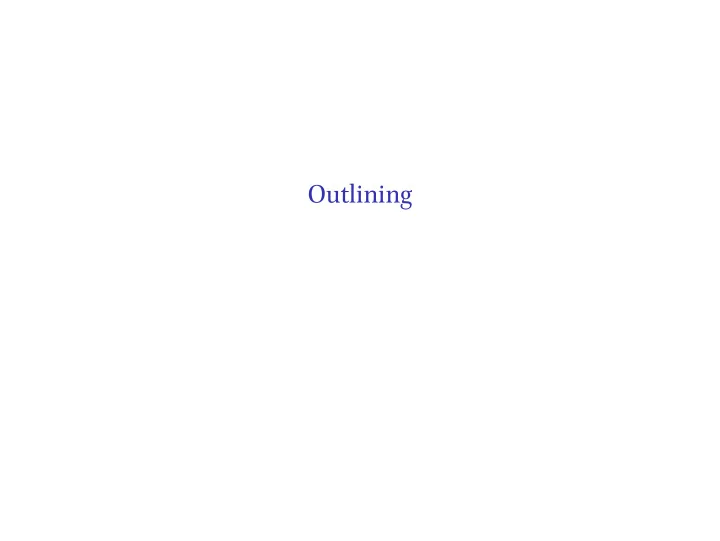

Outlining
Sentence Outline: Schema II. First claim A. First supporting argument B. Second supporting argument 1. First illustrative quotation 2. Second illustrative quotation III. Second claim A. First supporting argument B. … IV. Conclusion I. Thesis statement
Sentence Outline: Example explanations both in their Cainite ancestry and in folktale tradition. II. Landscape is part of the monsters’ identities. A. Grendel is frequently seen to travel to and from water landscapes. 1. Quotation… B. His mother has water epithets. 1. Quotation… III. Previous scholars have pointed out a connection between wet landscape and Cainite ancestry. A. Williams implies marine survival but then returns to the Chad narrative. B. Mellinkoff points to a rabbinic tradition concerning marine survival. I. The wet landscape inhabited by monsters in Beowulf has
Sentence Outline: Example Beowulf . A. Marine life is arguably exempt from the flood throughout Genesis. B. Augustine confirms this. 1. Quotation… C. Beowulf seems to rely on the same understanding of the flood. V. Not all environmental features in the poem may be explained through theological interpretation; in these cases, folktale conventions should be considered. A. The monsters are defined by night and darkness; these are common theological images, but are here better explained in terms of folktale convention. IV. Marine survival of Cain’s progeny may explain the water element in
Sentence Outline: Example A. Alaric Hall has shown a specific landscape mapping existed for supernatural creatures, following which all landscape categories may be charted along the axes of economic value and perceived danger. Following the same, marshes have especially strong supernatural connotations. 1. Maxims II 2. Hrothgar’s warning 3. Bertold of Regensburg VII. Conclusion: The monstrous landscape of Beowulf has roots in at least the two traditions of biblical theology and folktale tradition. VI. The same goes for the damp-landscape motif.
Bibliography Gibaldi, Joseph, ed. MLA Handbook for Writers of Research Papers . 7th ed. New York: Modern Language Association of America, 2009. P. S. Langeslag
Recommend
More recommend